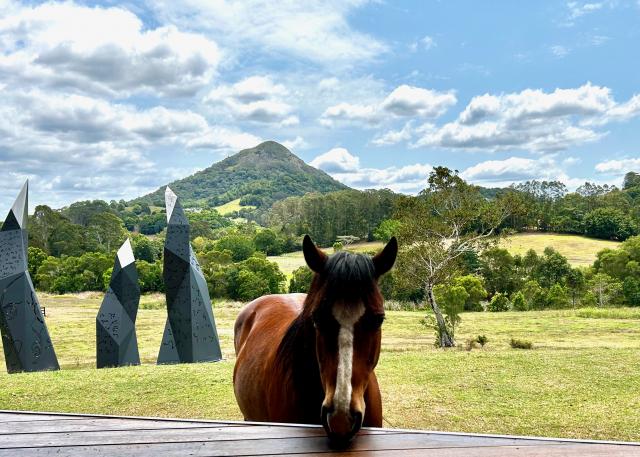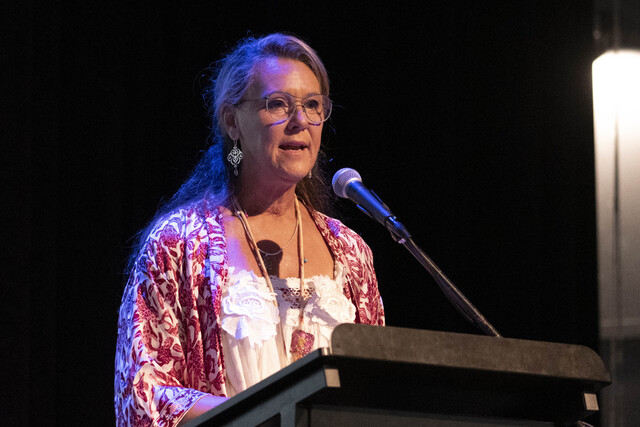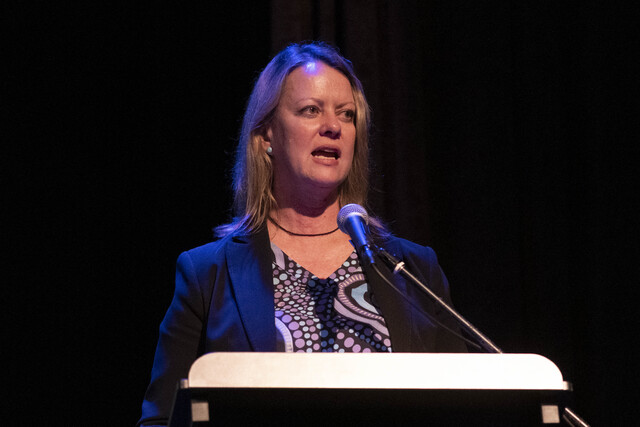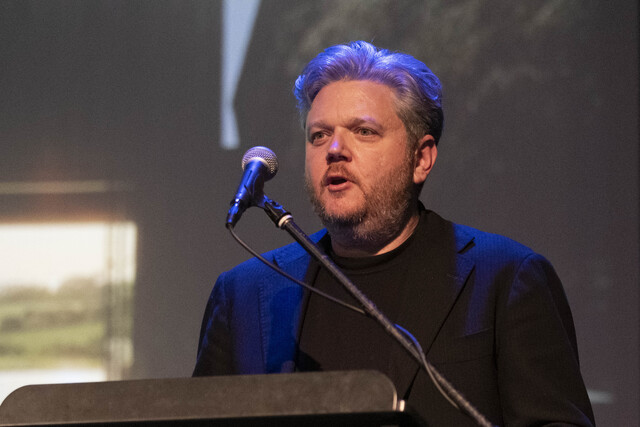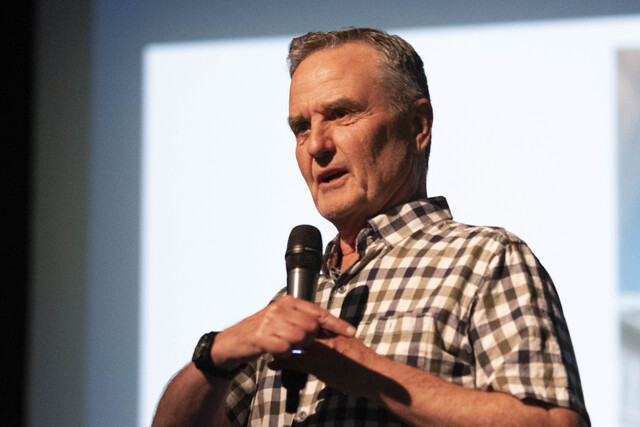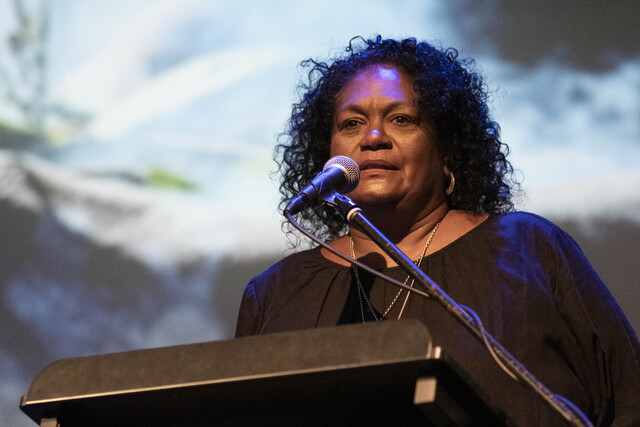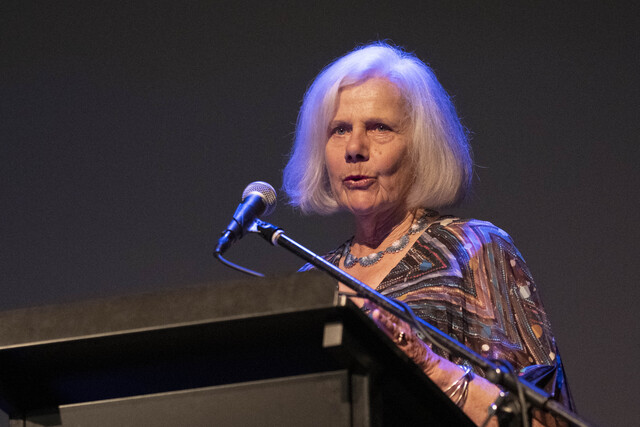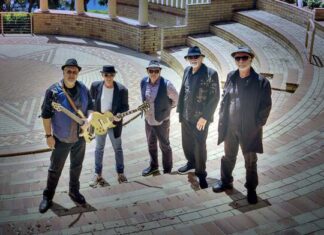The Sunshine Coast Open House forum is a keenly anticipated event. Last Friday the forum, held as part of Sunshine Coast Open House program, asked eight guest speakers from diverse backgrounds and perspectives, “what is a home?”
Emcee and lead of Sunshine Coast Council’s urban design and architecture unit Sarah Chalkley told guests at the event at Coolum Civic Centre that the level of community interest in the built environment was demonstrated by the booking out of open homes and buildings in the Open House program, some within eight minutes of being announced.
“Home means many different things to different people,” Sarah said as she introduced the speakers who gave their thought-provoking views on what a home means to them.
Among the speakers was town planner Greg Vann, First Nation elder Aunty Bridgette Chilly and Moon Mountain Sanctuary owner Lynn Scott.
Greg Vann, one of Queenslands leading planners and lead on the Shaping SEQ plan talked about the need for diversity of housing types for a healthy community and about his own search 12 years ago to find a small home for he and his wife after downsizing from a 5-6 bedroom colonial.
“It was the only one we saw, they’re as rare as hen’s teeth,” he said of the house they found on a 198sqm block at the back of another block, 3km from Brisbane CBD, five minutes from shops and services at Rosalie. “I had to pay a premium for that because we simply don’t have enough like this.”
“What is home? Is it a place to go to get away from all the hustle bustle, demands of everyday life, is it somewhere you go to make and store memories, this is what this is,” Greg said.
“The Australian dream of owning a house – we think of a home as being a house on its own block of land, but a home is much more than a house.
“In 2017 when I built the regional plan, I was lead on that, we created (a plan) to demonstrate the range of housing that communities really need, from the detached house to town houses, auxiliary flats, granny flats to apartments to big rise. If your communities don’t have that then they’re not really complete, they’re not really providing homes for everyone who wants to be in that community and you’re not providing for the community as their housing needs change as they go through their lifestyle. That’s the fundamental planning premise in the community – you create in the local area housing options which allows everyone to move through their housing needs as they change in their local community. The worst thing you can do for people as they age is to dislocate them from family and friends. But sadly that’s what we often do when we build the retirement villages out on the cheap land on the edge, then they end up being dislocated at a very vulnerable stage of their lives.
“Roughly in Australia a third of people in a community own their own house outright, a third is buying, they have a mortgage and a third is renting. The escalation of house prices, which is one of the prime causes of the housing crisis, is great for two-thirds of the population, but we are leaving a third of our population behind.
“We really need to carry everyone forward. In communities, this is proven, communities which give everyone the same access to opportunity function better socially and function better economically. This is really important.
“Monoculture of anything is the wrong answer. It’s the variety and diversity that helps communities function and you put that in the areas where people can access services, so, close to transport, close to centres, to employment, to health care, etc.
Greg said if there were more small houses like his at Rosalie “we would all have more sustainable communities, socially, environmentally, economically”.
Aunty Bridgette Chilly, Murulla Kabi Kabi First People and Country Jhdungah Sunshine Coast woman and Elder spoke about her idea of home as a traditional owner.
“Our country sits within the Kabi Kabi language speaking nation. Years ago my people would never come over this side of the river. We’d just stay over the other side of Maroochy River. Our home goes from Maroochy River, south to head waters of Mooloolaba to Coochin Creek and six nautical mile of sea country. This is matriarchal country. That’s proper women’s country. We’re on patriarchal country here. How do we know that. All the men mountains are here on this side of the river. It’s been life to my old people, my whole family since creation time began on what we call the Sunshine Coast today. We were all born here on country. When my children said they were going to have their babies I said you’re having them here, aren’t you.
“So we reaffirm our connection to country by having that strong connection. Our physical, medical, spiritual, cognitive, economic and social connections are unbroken. We’ll always stay at home on country. I don’t think you realise how special the Sunshine Coast is. It’s the most magic place. It’s ancient. The song lines of country date back eons. Our song lines of country Murulla is our blood border, the Mooloolah River, from the first drop of the Mooloolah water my grandmothers sang life into that water. Everything is sung into country. Everything we place – ceremonial sites, births, deaths, marriages on country is all mapped up on the stars. It’s still there today. We never lose country. We still hold that.
“We all need to be working together. If we all live here we all need to be working together. You never know when you turn the soil, you’ve got to talk to us mob. There’s some sacred things out there, sacred items, places. We all need to be connected to country. The Milky Way is our clock. It’s our spirit sky. “We never lose connection with our old people. We never lose connection to home.
“About 25 years ago I was called off country by a judge, never to return for something I did not do. I was exiled 25 years. That’s the hardest thing anyone can ever say to you. You’re not allowed to go back to your home. 113 years before that the same thing happened to my great great grandmother. You’re not allowed to go back home. But I came back. When I came back it was very difficult to see how country was. There was no welcome to country or doing our ceremonies or have our connections like we do today. Sunshine Coast Council is leading and setting a benchmark for reconciliation and working with our mob. You recognise that is our home. It’s our borders. It’s our flora, fauna, natural resources – that’s our home. All that is in my DNA. That’s who I am. My identity is my country, same for my babies, my grand babies, my siblings. I’m the oldest of my family. It’s the most beautiful thing to have that knowledge passed to me. It’s emotional too when you walk in country and you see country because country speaks to you and you’re looking at ancient sites, jurassic sites. We’ve got our rock art, of my old people, dated 50,000 years. We’re local, my mob’s local. I loved growing up here. I was raised by my grandmother from two days old and it was a blessing, with her five brothers and my mothers brother. He was my kin lore father. My grandmothers brothers were the last known initiated men on country. The Chilly family. We’ve got our chest plates – King and Queen.
“We worked with the timber getters. There were agreements that we made to stay on country, on that side of the river. Years ago if we were to come on this side of the river we could have been shot or anything. It was safer on that side.
“Can we work together please? Can we build a cultural centre so we can start repatriating our sacred past and items, ancestors and bringing them home. “We want to be a part of this beautiful, woven tapestry, the Sunshine Coast. We want to showcase our place on country with deadly structure you guys can build.”
Former business woman, winner of Telstra Business Woman of the Year and owner of Moon Mountain Sanctuary with her husband Ron, Lynn Scott spoke about her passion for the land, her horses and the arts.
“In our definition of home there are two important emotions. One is connection, the other is harmony,” she said.
“Our home was architecturally-designed by Peter Ireland from AJC. We created a home with one bedroom, one bathroom, no air-conditioning and it sits lightly on the landscape. It’s tiny. We’re two people, we don’t need more.
“The brief was to bring the outside in because we live on a farm of 50 acres. The second part of the brief was I want my horses to be part of my home. Our home is just one aspect of living and calling it home. There are no walls in our home. In the medieval time, in the Middle Ages the animals lived with you in the home. I think we’ve lost that connection. My herd of 12 horse run free to develop connections between themselves and us. It brings a feeling that I always wanted as a kid and now I have it.”
When faced with the idea of creating a garden Lynn and Ron decided to re-wild the land, planting 4000 trees and shrubs “here, there and everywhere”.
“We have a garden of chaos but it’s only chaos if you expect a garden to be ordered and manicured,” she said.
“Every morning about 500 birds arrive on our property and we have re-established the dawn chorus. It’s because we wanted the connection with the animals, the plants, the wind, the trees, the horses, everything. Connection is important and so is harmony. Ron is passionate about art and design. He has created an amazing sculpture park. The sculptures are on the property. There’s nothing protecting them from the horses. For us our home is a lot more than the built environment. It is many things. If we can reestablish that connection than a wonderful harmony evolves in your life and we enjoy our life there.”
For more information on Sunshine Coast Open House visit sunshinecoastopenhouse.com.au

